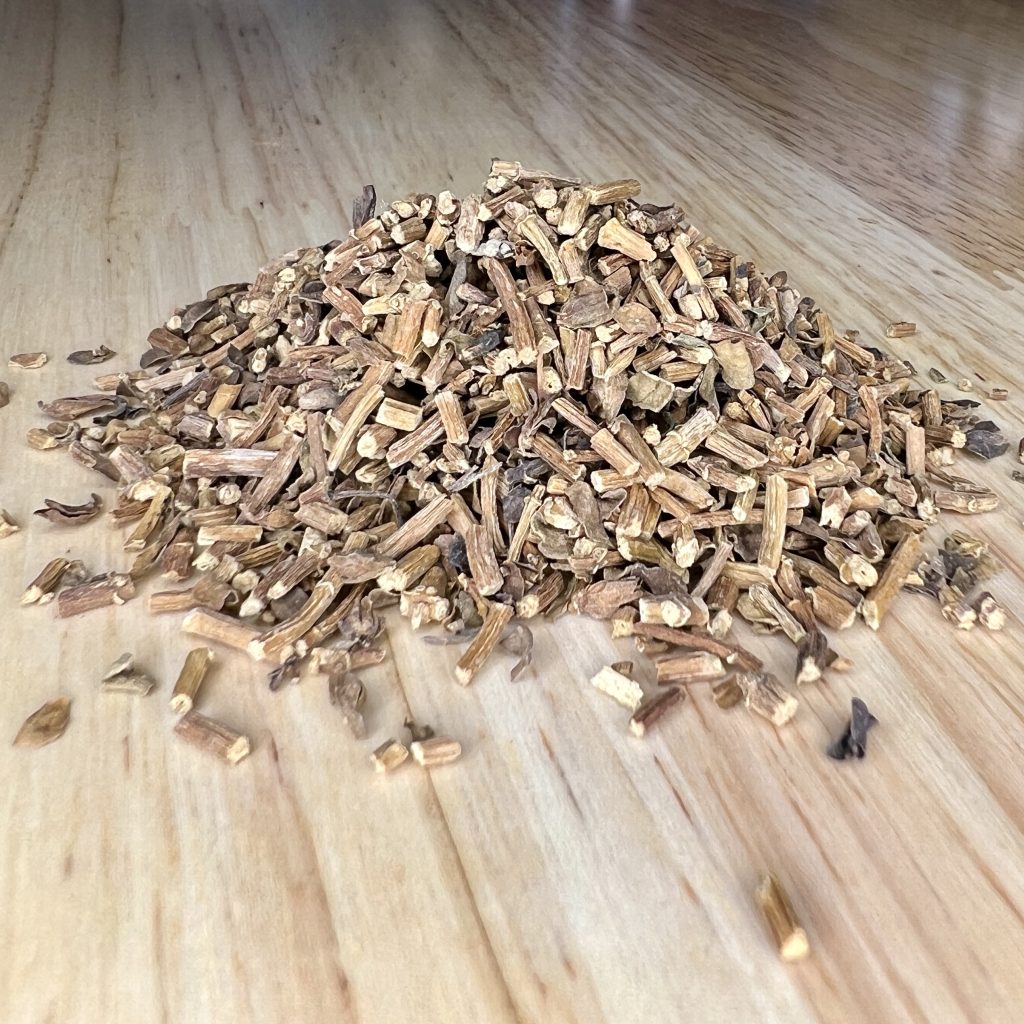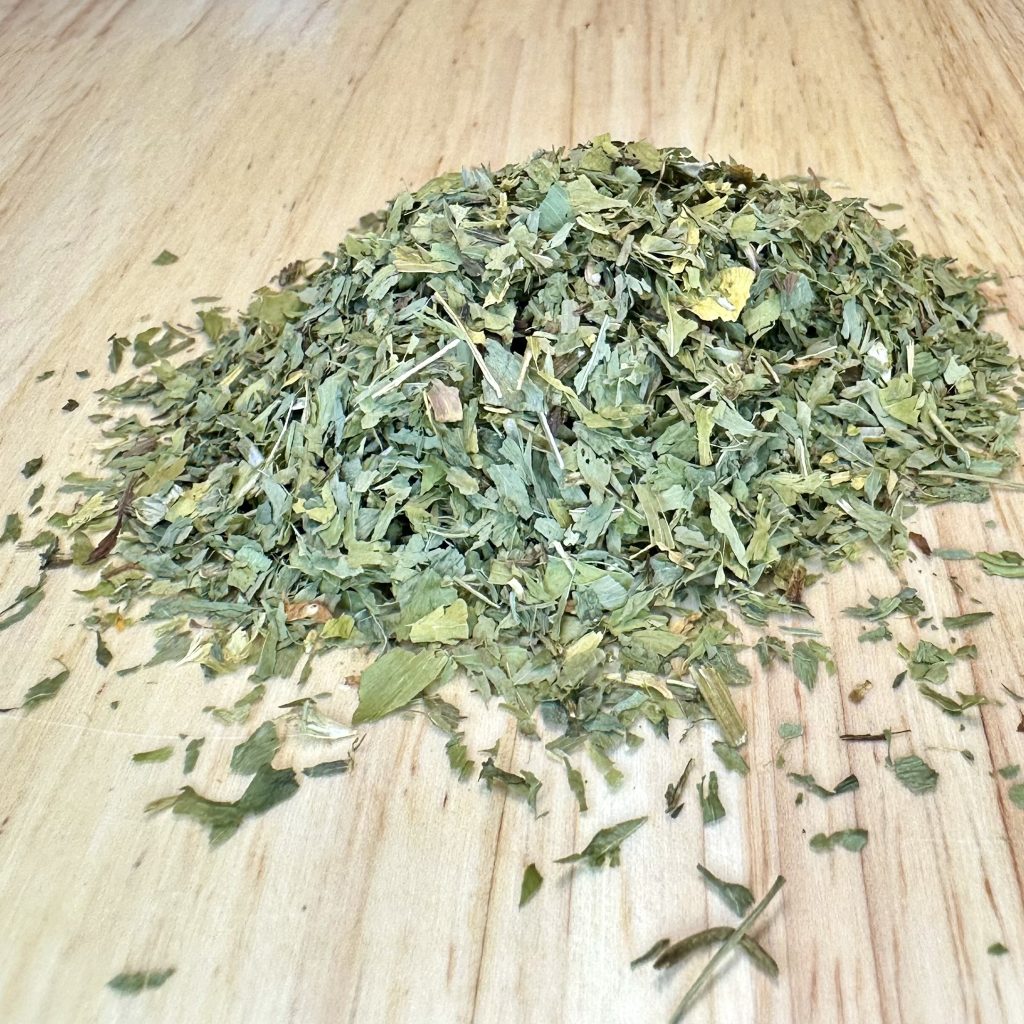Medicinal Action

Memory Improvement
Memory improvement involves supporting the brain’s ability to store and retrieve information effectively, addressing challenges such as forgetfulness, mental fog, or age-related cognitive decline. Herbal remedies such as ginkgo (Ginkgo biloba), gotu kola (Centella asiatica), and rosemary (Rosmarinus officinalis) are commonly used to enhance memory by improving circulation to the brain, reducing oxidative stress, and supporting neural health. Practices like mindfulness, adequate sleep, and brain-stimulating activities are also key components of improving memory and overall cognitive function.

Products containing Memory Improvement
Discover our collection of artisanal salves for holistic healing.
Bacopa / Brahmi (Bacopa monnieri)
Carefully sourced, organic, and packaged by hand, our herbs are sold by the ounce. To order more, adjust the quantity in 1 oz increments.
Example: Quantity 4 = 4 ounces.
Monographs with the (Memory Improvement) function
Eleuthero (Eleutherococcus senticosus)
In traditional Chinese medicine (TCM), Eleuthero has been used for over 2,000 years to fortify Qi and support the Spleen and Kidney meridians. It was traditionally used to increase stamina, combat fatigue, and strengthen the immune system, especially during recovery from illness. In Russia, Eleuthero gained prominence during the Soviet era for its ability to enhance athletic performance, mental clarity, and stress resilience.
Current Uses:
Today, Eleuthero is widely used as an adaptogen, helping the body adapt to stress and improve endurance and energy. It is commonly used for:
- Increasing energy and stamina during periods of fatigue or physical exertion
- Supporting immune function, particularly in times of stress or recovery
- Balancing stress responses, promoting mental clarity and focus
- Enhancing athletic performance and aiding in post-exercise recovery
- Improving overall vitality and resilience to environmental stressors
*To learn more about this plant’s traditional and modern uses, energetics, and potential contraindications, visit our Materia Medica section and search for this herb by name. There, you’ll find detailed notes on safe use and preparation methods.
Ashwagandha Root
A deeply restorative adaptogen, Ashwagandha Root (Withania somnifera) has been treasured in Ayurvedic tradition for centuries for its ability to strengthen resilience and restore balance. Known as a “rasayana” or rejuvenative tonic, it supports the body’s natural capacity to adapt to life’s daily stressors and maintain equilibrium across the nervous, endocrine, and immune systems.
This tincture offers a stabilizing, grounding energy — not stimulating, but harmonizing. It helps moderate the body’s stress response, nourishing depleted reserves and supporting healthy adrenal function over time.
Crafted through a 60% organic cane ethanol extraction to preserve its full spectrum of constituents, this formula embodies the adaptogenic principle described by herbalist David Winston: to normalize rather than force, to strengthen rather than overstimulate, and to build vitality that endures.
Like the resilient root itself, Ashwagandha invites you to slow your rhythm, find your center, and cultivate calm strength from within.
Dosage
Take 2–4 mL (approximately 40–80 drops) up to three times daily in a small amount of water or directly on the tongue.
Best taken consistently over time for cumulative benefit, particularly during periods of emotional strain, fatigue, or high output.
Pairs well with restorative practices such as breathwork, yoga nidra, journaling, or quiet moments in nature.
Cautions
Generally well-tolerated. Consult a qualified healthcare provider before use if you are:
-
Pregnant or nursing
-
Sensitive to plants in the nightshade (Solanaceae) family
-
Managing hemochromatosis (excess iron) or hyperthyroid conditions
-
Taking sedatives or thyroid medications
Discontinue use if any adverse effects occur.
Red Clover (Trifolium pretense)
Historical Use:
Red clover has long been regarded in European and folk herbal traditions as a “blood purifier” and lymphatic tonic. Herbalists used the blossoms as an alterative to support the body’s natural detoxification processes, promote clearer skin, and ease stubborn, lingering congestion. The plant was also valued as a gentle expectorant to relieve coughs and bronchial irritation. Topically, poultices made from red clover were used to soothe rashes, eczema, and wounds.
Current Uses:
Today, red clover is most widely recognized for its phytoestrogenic properties. Isoflavones found in the blossoms have been studied for their ability to modulate estrogen activity, making red clover a common choice for easing menopausal symptoms such as hot flashes, night sweats, and mood swings.
Red clover also remains an important herb for lymphatic and “blood-cleansing” support in contemporary herbalism, used to promote healthy skin and gentle detoxification. It is sometimes included in formulations for chronic skin conditions, sluggish lymphatic flow, or recovery from long illness.
In cardiovascular health, red clover’s isoflavones have shown potential for improving vascular elasticity and supporting healthy lipid profiles, though research is mixed. Some practitioners also recommend red clover extracts for supporting bone density in postmenopausal women.
Respiratory uses continue today, with red clover being taken as a tea or syrup to support cough relief and promote the expectoration of mucus. Topically, it is used in salves, washes, and poultices to calm inflammatory skin conditions and support wound healing.
Learn More:
Want to explore more about energetics, history and more? Visit our Materia Medica section and search for this herb to deepen your understanding.



